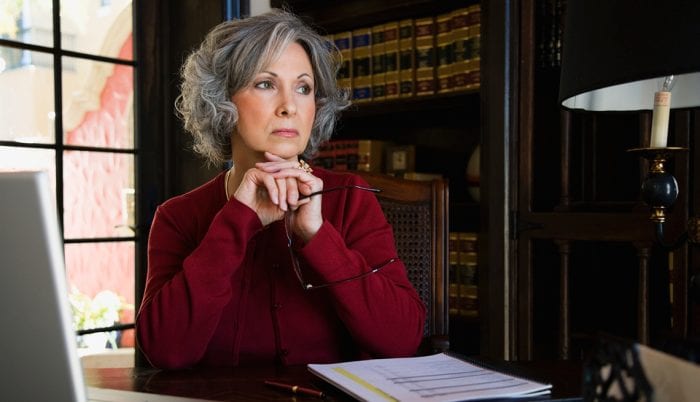Many stores, shops and restaurants had to close because of the COVID-19 pandemic nationwide. Sustaining a business was just too hard, especially during the unprecedented times of the virus spread then government-mandated shutdowns of most venues and shops.
Despite these massive hardships, several so-called COVIDpreneurs, or people who opened up shop during the pandemic, decided to take a risk during a rather bleak time, some putting their livelihoods on the line for the sake of their passions as well as for the community.
While it’s hard to know the future of these new businesses, most owners said not even a pandemic could stop them from realizing their dreams.
SāGhar: 111 W. Broadway, Port Jefferson

The family behind SāGhar officially took over the former Harbor Grill in January. With plans to open up a brand-new fine dining experience with Indian cuisine on the water in March, their first day open was also the day they closed, with no real way to prepare for what was going to happen on the horizon.
“Our main attention was, ‘How are we going to survive’?” co-owner Indu Kaur said. Since their concept was more upscale, they didn’t initially incorporate takeout or delivery options.
“We had to sit and brainstorm: ‘How are we going to handle not having any of those things and still be functioning and operating?’” co-owner Kiran Wadhwa said.
They decided to spend their time helping essential workers while they waited for state restaurant guidelines to change. During the height of the pandemic, they donated over $30,000 worth of food and more than
2,500 meals.
“Instead of thinking about our own business and menu and takeout, we came up with the idea to donate food to hospitals from Riverhead to New York City.”
During the summer, indoor dining was finally allowed and in just one week the family moved quickly to set up SāGhar, but it was tough. Since their original plans of opening were halted months before, they had to complete their menu, renovate the kitchen to accommodate Indian cooking and train their new staff under social-distancing rules.
It was hard on the family financially as well. On top of typical expenses that would be spent during a new opening, they had to add masks, shields and signs on top of a budget that was already depleted.
Kaur said her family began using personal savings and personal savings just to pay bills and make their dream restaurant a reality. Although customers were flocking to SāGhar during the summer and since their grand opening, now that the cooler weather is here, they’re getting worried again.
“We were able to recoup a little bit during the summer, but now it’s that same feeling of stress, because people aren’t walking in and going out as much,” Wadhwa said. “We’re just hoping that things normalize … I think now I’m feeling it more, because now that we’re settled from the summer, it’s just so draining. … You feel so down from it.”
Although it has been tough, the family is still fighting to keep their restaurant afloat because they believe in their brand and want to share good food with the community. “Breaking even would be ideal for the next year,” Wadhwa said.
Taco Island Tex-Mex: 5507 Nesconset Highway, Mount Sinai

Aman Bhola has been in the food truck industry for a few years, owning a popular North Shore Tex-Mex vehicle. But he said in early March, he decided to leave that business endeavor and start anew with a brick-and-mortar location in Mount Sinai in April, even though the COVID-19 virus was spreading fast.
“My customer base was already a strong motivation for me to come back,” he said. “But nothing in the world would stop me from following my dream.”
Taco Island officially opened up in July after a quick, but hefty, renovation of the space’s former occupant. Bhola, a 27-year-old Indian American knew his customers could use some good, affordable food while riding the pandemic out.
“I believed in myself and I believe in my brand,” he said.
Taco Island offers an extensive menu of Mexican options, all made fresh and from scratch with every order.
“At Taco Island, our main focus is authentic flavor,” he said.
But it wasn’t the easiest task to open during the crisis.
“It’s been a huge challenge,” he said. “My team has been working above and beyond.”
But to get through the rest of COVID-19, he’s come up with a plan to stabilize his business and “deal with the next wave.”
“We’re not increasing our staff or inventory,” he said. “We’re taking the right precautions.”
The young COVIDpreneur said that although it’s a worrisome time, he still feels motivated and excited to be doing what he loves.
“For the last three Friday’s we’ve been opened, we’ve had to close early because we sold out,” he said.
He didn’t fully remove himself from the food truck business, either, which helped out for catering outdoor events.
Long Island Beer and Burger Experience: South Setauket

When COVID-19 hit New York, Thomas Francis, of South Setauket, was worried because March is usually the start of his industry’s season. “My season starts St. Patrick’s Day,” he said. “From that time until the end of June it was bad.”
Four years ago, he started a small wedding business, the Long Island Cuban Cigar and Bourbon Experience. His mobile cigar and bourbon lounge sits inside a 32-foot vintage Airstream trailer that can be brought to any type of outside event.
“It’s the only experience like this in the world,” he said, noting that he has brought his services across the country.
Since the cigar and bourbon mobile was such a hit, two years ago he began the Long Island Wine and Cheese Experience, featuring wines from local vineyards and cheeses to pair with them.
With his businesses going so well, he began thinking of his next venture featuring burgers and beers. Accordingly, the Long Island Beer and Burger Experience was planned to roll out in April. Using the same model, it would feature craft beers from local breweries and a burger to go with them.
“In April I had plans to begin the Beer and Burger Experience, but I thought I wasn’t going to open because of COVID,” he said.
Despite the pandemic, he decided to start up his third vehicle anyway.
When everything shut down and events were canceled, it was hard, he said. But then as outdoor weddings, parties and gatherings became more common, it worked out in his favor.
“Things really shifted,” he said. “It was the right time and place. … This is where the market is going.”
His experiences are ideal right now for families planning small, intimate events.
“It’s a safe, responsible, fully fledged experience,” he said, especially with vineyards and breweries closing during the summer, or not hosting a full capacity of visitors.
“The Wine and Cheese Experience was the most popular because the vineyards were closed,” he said. “It literally saved me.”
While the pandemic was hard on him and his businesses right at the start of his busy season, he said it worked out and now he’s booked solid for the near future. “During this climate, we can easily have the party of your dreams in your backyard,” he said.
Druthers Coffee: 1113 North Country Road, Stony Brook
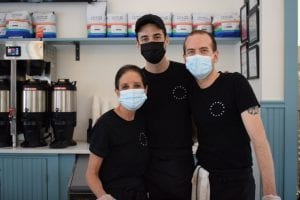
Kathryne Piazzola, Zachary Russell and Michael Buchholz had their plans to open a local coffee shop set for some time. Their goal was to open Druthers right across from Stony Brook University in a new center being built, Stony Brook Square.
“We signed the lease three years ago,” Piazzola said. “And we were hoping to open actually in January.”
But there were some construction delays and then the virus hit Long Island. After a few hurdles, they finally opened officially on Aug. 14. With their opening, they had to change their plans a little to fit into the new state health guidelines, like not allowing guests to bring their own glassware while still trying to be sustainable without many paper cups.
“Nevertheless, we’ve really developed an incredible following of regulars,” Buchholz said. “Everybody who comes by is truly so understanding about the circumstances that makes it so much easier.”
While continuously changing their opening date, and finishing the painting, decorating and preparing, they also had to go through the Paycheck Protection Program. “We knew we were going into it with a limited budget, we had to operate as intelligently as we possibly could,” Buchholz said. “So, navigating federal loan programs was not at all easy, while finding our footing and feeling confident about everything that we had spent three years planning.”
Piazzola said three months later things are running smooth.
“You start talking to people and meeting our guests when they were first coming in,” Buchholz added. “And it just turned out that it’s exactly what people needed. They wanted an experience that felt welcoming and warm, and a bit of hospitality from the heart of a small business that had the human story behind it.”
Even with support from the community, they’re beginning to get a little anxious about the upcoming winter. “Rather than planning for growth in the way that we wanted to do initially, we’re planning for winter that might be a little bit more challenging,” Buchholz said. “There’s still things that we’re wrapping our heads around, but it’s been surprisingly gratifying.”
Osteria Umbra: 197 Terry Road, Smithtown

It’s always been chef Marco Pellegrini’s dream to open a fine dining restaurant, and when he found the space in Smithtown over a year ago, he knew it was where he belonged.
A chef from the age of 14, Pellegrini comes from the ancient Italian town of Foligno in Umbria. He and his family moved to the United States seven years ago to partner with another restaurant out on the North Fork. The partners decided to go their separate ways and Pellegrini moved west.
“Everywhere I stopped from Mineola to the south, I was not impressed,” he said.
Then he found Smithtown. He said he visited the area when he first came to the U.S. and was impressed by the family oriented community.
“It’s more what I’m looking for,” he said.
Together with his wife, Sabrina Vallorini, and partners — Stephen, Diane and Daniel Bragoli — they signed the contract in September 2019. From that point on, they renovated the whole space, decorated it with marble, chandeliers, wine racks and an open-oven BBQ imported from Italy. Their goal was to open in March.
Although it was an uncertain and scary time, they made the most of it. Pellegrini, his wife and their partners took on the renovations themselves, painting the space and completing it at their own pace. The restaurant officially opened Sept. 9, more than six months past its planned date.
But the uncertainty of another virus wave is stressful. “I really want to try and stay open,” he said. “We just have to cross the bridge until the end of COVID right now, and run the restaurant without losing money.”
He’s still hopeful, because he stands behind his brand. Pellegrini said that the food at Osteria Umbra is different than typical Italian — everything is made on-site, from the pasta to the gelato and the authentic Italian cuisine.
“The way we do the food in Italy is little bit different than what we’re doing here in the USA,” he said. “Usually you find more authentication in the city, Long Island there are not too much.”
ENDO Ethos: 289 Main St., Huntington

Clark and Christine Ruggeri opened their first hemp and CBD storefront in Northport last year. When space in Huntington became available, they knew to jump on it, signing their second lease in November. With the intention of opening their new location in March, COVID hit and halted their plans.
“Who would have ever imagined,” she said. “We almost backed out of it. When it came time to decide what we were going to do, we decided to go through with it anyway.”
While struggling to keep their other store afloat through e-commerce and local delivery from March until June, the Ruggeris opened their Huntington “dream location” on Aug. 1.
“I think that’s why we were able to survive the first round of quarantine, because people that we didn’t even know were ordering from our website,” she said. “This might be the opportunity for people who don’t want to buy online but feel really stressed or anxious or can’t sleep … there are people who needed this space, and that’s why we decided to do it.”
She added that as they had the space since November 2019, they already had so much invested.
“Then you have to find a way to pay that back without making an income from the space,” she said. “We kind of felt like we had no choice.”
But since they opened, although it’s been tough, the couple said they have been able to sustain their business.
“We’re hoping that post-pandemic, it will pick up again. So, for now, as long as we can stay afloat, meet new people and introduce them to our products, I think that’s the goal,” Christine Ruggeri said.
But right now, the village isn’t as crowded as it normally would be in the pre-pandemic world.
“Huntington depends very much on the bar and restaurant scene,” she said. “With the bar and restaurant scene being so minimal right now, you can definitely feel the impact of that on the street.”
Although the couple are concerned about the upcoming winter, they said it might work out in their favor since CBD, which stands for Cannabidiol, was an explosive market before COVID.
“Hemp or CBD might be the thing that people need right now,” she said. “Maybe we’ll actually end up doing better than we thought because this is something that’s so needed.”

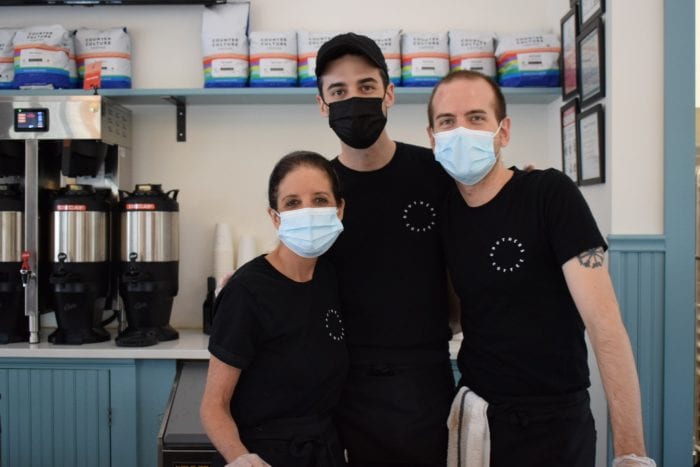
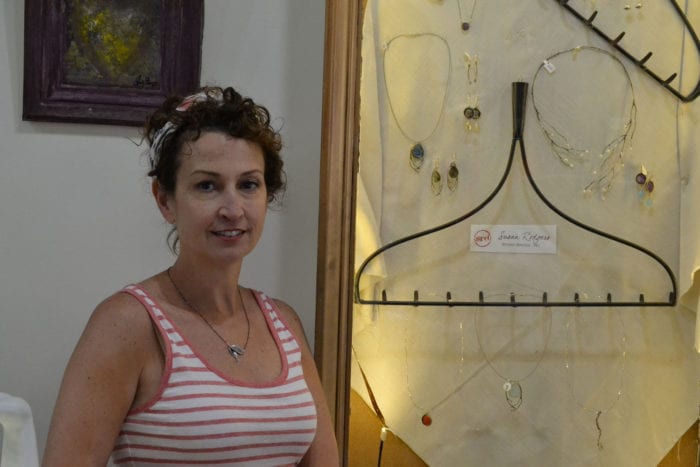


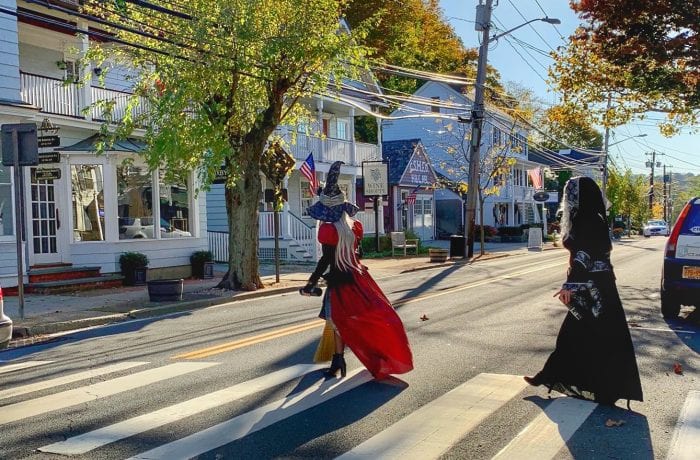

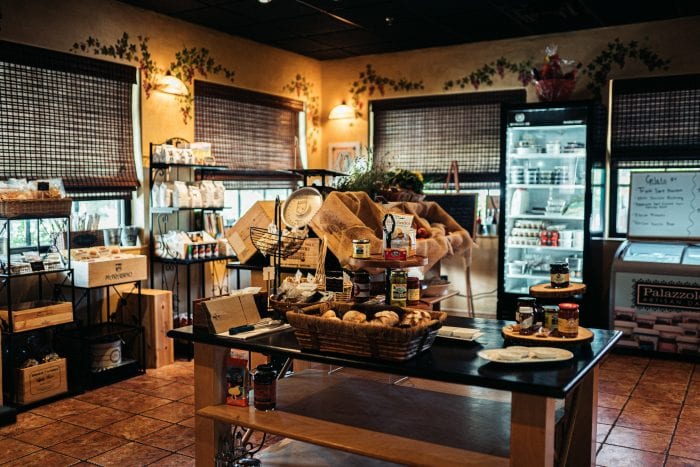

 The other example involves my oldest grandson. He is known to some of you as the filmmaker of the historic “One Life to Give,” telling the story of Nathan Hale, Benjamin Tallmadge and the beginnings of the Revolutionary War Culper Spy Ring that was shown at the Staller Center and is being viewed in school districts.
The other example involves my oldest grandson. He is known to some of you as the filmmaker of the historic “One Life to Give,” telling the story of Nathan Hale, Benjamin Tallmadge and the beginnings of the Revolutionary War Culper Spy Ring that was shown at the Staller Center and is being viewed in school districts. 

